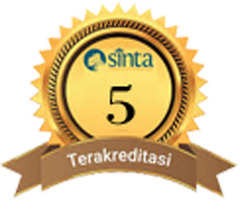KEKUATAN DAN PELUANG REAKTUALISASI KODE ETIK GURU MENUJU MASYARAKAT ACEH YANG BERMARTABAT
DOI:
https://doi.org/10.22373/fitrah.v3i2.1477Keywords:
Reactualization of the Teacher's Code of Ethics, Aceh with DignityAbstract
The quality of education in Aceh has weakened in recent years. This can reduce the dignity of the Acehnese people compared to the former sultanate period. One way to restore this dignity and worth is to improve the quality of education; and one way to improve the quality of education is by re-actualizing the teacher's code of ethics in the learning process in schools and madrasas. The Islamic attitude of the Acehnese people, graduates of Dayah and UIN Ar-raniry is a big force in realizing the re-actualization of this teacher's code of ethics. The reformation era that has started since 1998, Law Number 44 of 1999 and Law Number 18 of 2001 which established Aceh as an Islamic law area. The Law of the Republic of Indonesia Number 11 of 2006 which stipulates Aceh as a special autonomous region and the formation of the Aceh Education Qanun Number 11 of 2014 concerning Education Providers is a great opportunity to implement this. The steps that need to be taken in this re-actualization are that the teacher must study, understand, appreciate and implement this entire code of ethics. Knowledge of the science of educational tools must also be mastered. In the end, rewards and punishments still need to be given to teachers and education staff who don't want to heed them. The obstacle that may be faced is that not all teachers understand and live up to this code of ethics. However, this can be overcome by conducting planned seminars, workshops and trainings.
Downloads
Published
How to Cite
Issue
Section
License
Authors who publish in this journal agree to the following terms:
- Authors retain copyright and grant the journal right of first publication with the work simultaneously licensed Attribution-NonCommercial-ShareAlike 4.0 International (CC BY-NC-SA 4.0) that allows others to share the work with an acknowledgment of the work's authorship and initial publication in this journal.
- Authors can enter into separate, additional contractual arrangements for the non-exclusive distribution of the journal's published version of the work (e.g., post it to an institutional repository or publish it in a book), with an acknowledgment of its initial publication in this journal.
- Authors are permitted and encouraged to post their work online (e.g., in institutional repositories or on their website) before and during the submission process, as it can lead to productive exchanges and earlier and greater citation of published work. (See The Effect of Open Acces)









